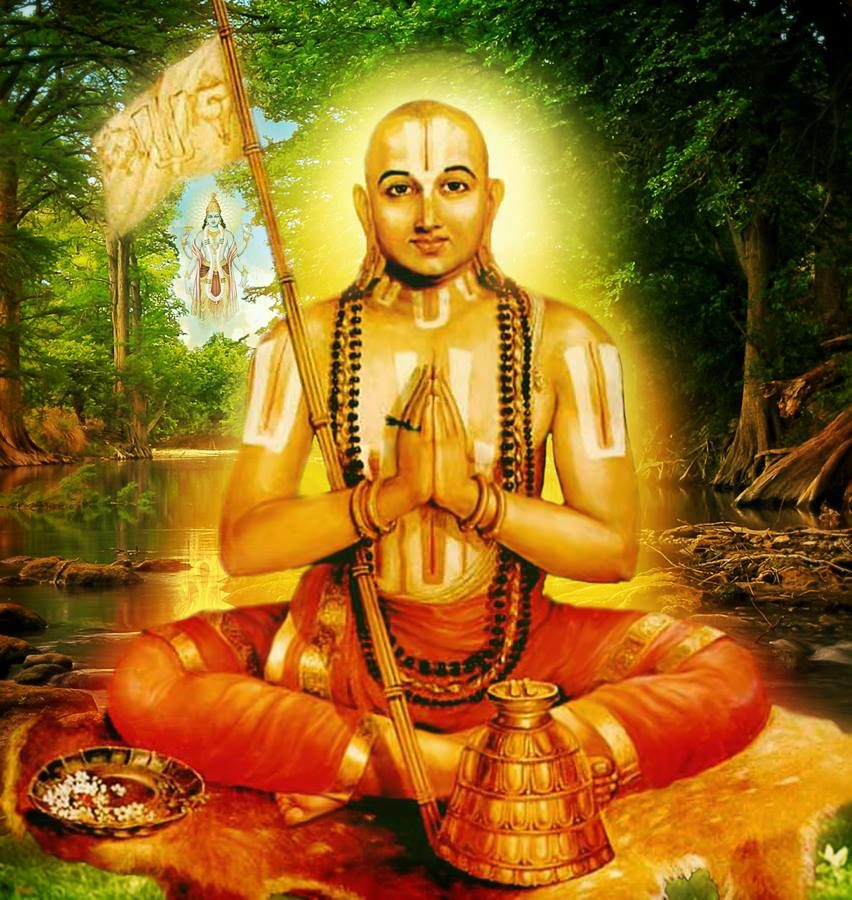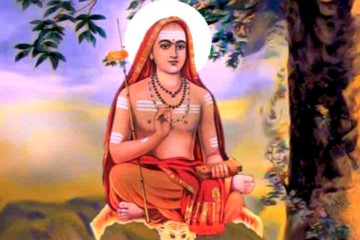|
Ramanujacharya was born near Chennai, Tamil Nadu and lived during 1017–1137. He composed philosophical works and committing to writing the special views that were being developed orally by Yamunacharya (the grandson of Nathamuni, the great Alver) and his predecessors, gave the system a solid foundation to the Vasishtadvaita or qualified non-dualism, one of the great Hindu Philosophies. He established Lakshmi-sampradaya, also known as Srivaishnavism.
Vasishtadvaita Philosophy: He propounded the philosophy so called as “Vasishtadvaita” or qualified non-dualism. Under the system, he proclaimed that the unity is not the sublation of all diversity but the subordination of diversity to unity. World, jiva and God (the absolute one) are true and liberation from bondage is also factually true. He refuted the Advaita doctrine of Shankara that the Brahman, the absolute as the non-dual being in whom the world of many is mere appearance ascribed by ignorance and not actually existing. Ramanuja questioned locus of ignorance, if it is in Brahman; Brahman is loaded with evil and becomes unworthy as a spiritual goal. Brahman (God):
Jiva (Soul) & Jagat (Nature):
Jivas are hold of oppressive Karma that generates the spiritual blindness of ignorance and impurity. God is untouched by karma and therefore absolutely pure. Srishti & Parlaya:
Liberation:
His Teachings:
Reference: Bhakti Schools of Vedanta – by Swami Tapasyananda, Sri Ramakrishna Math, Chennai.
0 Comments
Advaita of Adi Shankaracharya
Adi Shankaracharya was an exponent of Advaita Vedanta philosophy which is expounded in the following shloka: ब्रह्म सत्यं जगत् मिथ्या जीवो ब्रह्मैव नापरः (Brahman is the only truth, the world is illusory, and there is ultimately no difference between Brahman and individual self) Adi Shankaracharya was born in 8th century in Kaladi village of Kerala and lived for 32 years. He composed commentaries on the more than 250 Vedic texts (Brahma Sutras, Geeta, Principal Upanishads, Bhagavad Gita, Vishnushstrnam, Lalitatristi, Vivikcudamani etc.). Vivekcudamani expounds the Advaita Vedanta philosophy. As per Advaita Vedanta philosophy, there are two realities: Vyavaharika (empirical reality, Maya) and Paramarthika (absolute, spiritual Reality, Brahman). Maya create a bondage to the empirical world, preventing the unveiling of the true Self (Real, Atman, Brahman). The major highlights of the Advaita Vedanta philosophy are mentioned as under:
Reference: Sri Sankaracarya’s Vivekacudamani by Svami Madhavananda |
Archives
July 2024
Categories |


 RSS Feed
RSS Feed